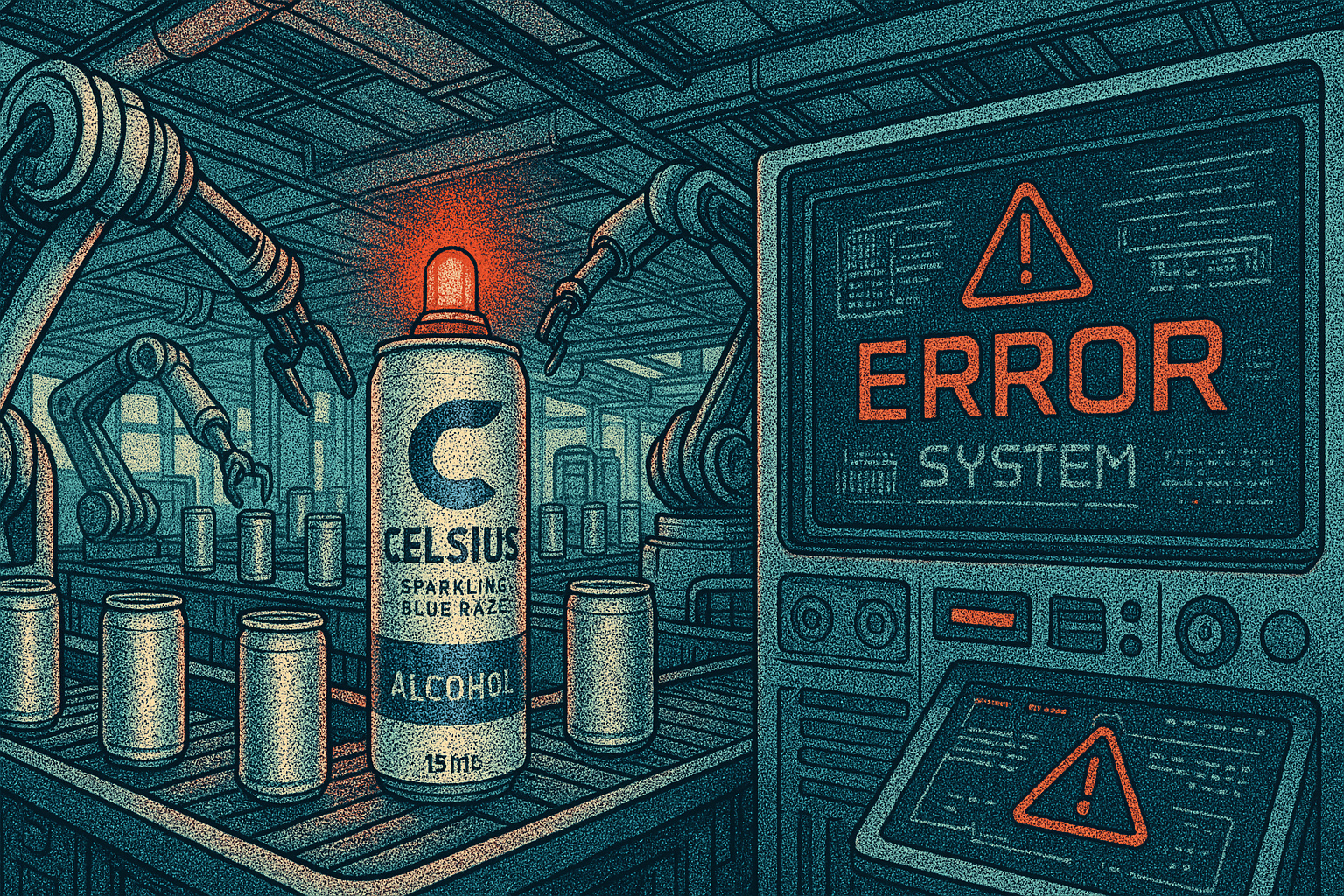In a packaging blunder that seems almost impossible in the era of AI and automated supply chains, Boca Raton based Celsius Holdings found its signature energy drink at the center of a startling recall recently, after cans labeled Celsius Astro Vibe Sparkling Blue Razz were discovered to contain vodka based High Noon seltzer instead.
How Did This Happen in the Age of Automation?
The mix-up, which could have serious consequences for underage consumers and those avoiding alcohol, was traced not to Celsius or High Noon directly but to a shared third-party packaging supplier that somehow shipped empty Celsius cans to High Noon’s filling facility. The result: hard seltzer inside non-alcoholic energy drink cans, distributed under the wrong label in multiple U.S. states.
It’s the kind of manufacturing mistake you expect from the analog era. But this happened in 2025, with AI monitoring, smart logistics, and barcode level traceability.
one South Florida founder commented on Threads.
A Shocking Mislabeling
The issue came to light when High Noon (a brand under E. & J. Gallo Winery) issued a voluntary recall of certain Beach Variety 12-packs sold between July 21–23 in Florida, New York, Ohio, South Carolina, Virginia, Wisconsin, Michigan, and Oklahoma. Inside those multipacks were cans clearly branded as Celsius’s non-alcoholic energy drink, yet filled with 4.5% ABV vodka seltzer.
Who’s Responsible?
According to both companies, Celsius Holdings had no role in manufacturing or filling the mislabeled cans. High Noon and Celsius are entirely separate brands with no ownership or operational overlap. The culprit was a shared third-party packaging supplier that failed to separate can inventory between clients.
Both companies say they’re cooperating fully with the FDA and federal regulators. Celsius, in particular, has emphasized that it was blindsided by the incident and is working to protect consumer trust.
Where Was the Tech?
The blunder raises serious questions about the reliability of modern automated packaging systems, especially in a time when AI vision tools, digital twins, and real-time supply chain tracking are being hailed as fail-safe. How did an alcoholic product end up in cans specifically labeled for a wellness drink? And how did multiple systems from visual inspection to digital scans fail to detect the error?
Industry watchers also warn that such a high-profile packaging error could have ripple effects on brand trust, especially for Celsius, whose core customers include health-conscious consumers, athletes, and startup founders who see it as a clean, functional energy choice.
In South Florida, Celsius has developed near-cult status among the startup crowd and fitness focused professionals. It’s the unofficial drink of co-working spaces, wellness studios, and pitch decks, an energy boost without the crash or compromise. That makes this mislabeling incident all the more jarring to a community that relies on clear-headed, non-alcoholic performance fuel.
What Should Consumers Do?
Anyone in possession of the affected products should not drink them. Even if purchased outside of a High Noon pack, dispose of the cans and check for safety notices.
Consumers with questions or refund concerns are advised to contact High Noon Consumer Relations.
So far, no injuries or illnesses have been reported. But the incident serves as a sobering reminder: even in 2025, when AI is supposed to rule the factory floor, human errors and system blind spots can still sneak through.
